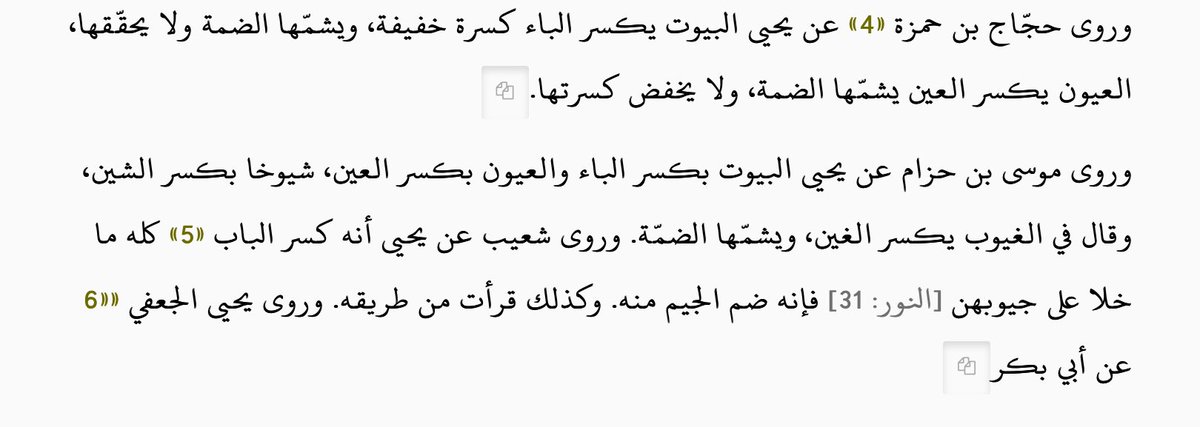Usually when we talk about vowel harmony (or “disharmony”) in the Qur’anic readings, it has to do with pronouns. One interesting instance of vowel harmony which doesn’t have to do with pronouns is for the words أُم [umm] and أُمهات [ummahāt]. 1/8
When it is preceded by a short or long /i/, the hamza of أُمّ is recited with a kasra (إمّ) [imm] by the Kufans Ḥamza and al-Kisā’i who harmonize it with the previous vowel. This happens in the following four places.
The same applies to the plural أُمَّهات. When it’s preceded by /i/, al-Kisā’i recites the hamza with a kasra [immahāt]. Ḥamza takes it a step further and harmonizes the vowel on the mīm as well for [immihāt]. Here is a combined reading of 16:78 in both Ḥamza and al-Kisā’i.
It is a very deliberate case of vowel harmony because both reciters only recite it in that manner when in conjunction with the previous word. When it is recited in isolation, they revert back to the original voweling.
Any other cases of vowel harmony in the qirā’āt come to mind?
Any other cases of vowel harmony in the qirā’āt come to mind?
I think a related phenomenon is the case of the فُعول plurals with weak medial radicals which are: بيوت، عيون، جيوب، شيوخ، غيوب.
The original pattern falls on the scale fuʿūl (buyūt, etc.), but some readings shift the first /u/ to an /i/ to better harmonize with the ي after it.
The original pattern falls on the scale fuʿūl (buyūt, etc.), but some readings shift the first /u/ to an /i/ to better harmonize with the ي after it.
Ḥamza’s reading seems to be the only one that consistently shifts the /u/ to /i/ in all the listed words. For the other readings that do the shift on select words, it appears to be random. I can’t find any phonological rule that explains the randomness. https://twitter.com/phdnix/status/1240022643446816768">https://twitter.com/phdnix/st...
Al-Dānī discusses this in length indicating that early reciters, including some of the eponymous canonical reciters, may have recited the first /u/ as something in between /i/ and /u/, probably something like the front rounded ü (/y/ in IPA).

 Read on Twitter
Read on Twitter![When it is preceded by a short or long /i/, the hamza of أُمّ is recited with a kasra (إمّ) [imm] by the Kufans Ḥamza and al-Kisā’i who harmonize it with the previous vowel. This happens in the following four places. When it is preceded by a short or long /i/, the hamza of أُمّ is recited with a kasra (إمّ) [imm] by the Kufans Ḥamza and al-Kisā’i who harmonize it with the previous vowel. This happens in the following four places.](https://pbs.twimg.com/media/EnZ0gwaVcAI_yjl.jpg)








